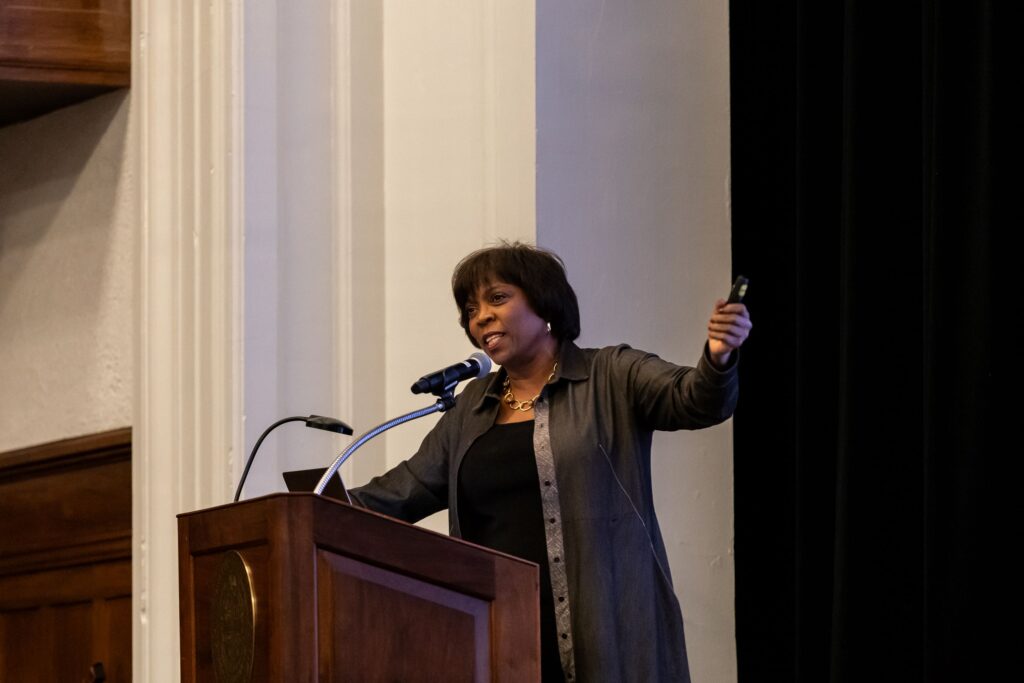Thanks Obama…
Commentary
December 6, 2019
Bridgewater, Va.- Cancel culture, ideally, seeks out individuals and organizations that have promoted bigoted or socially unacceptable ideas. It aims to strip the individual or organization of their source of income and voice.
Cancel culture has the potential to take the place of mass protests, and the need to petition in order to invite positive, social change on a large scale.
Unfortunately, rather than carefully and strategically planning what to cancel, cancelers have targeted anyone with viewpoints that do not exactly align with their own.
During an interview about youth activism at the Obama Foundation summit, former President Barack Obama is quoted warning young people of engaging in “militant wokeness.” Obama goes on to say that “if all you’re doing is casting stones, you’re probably not going to get that far.”
Obama recognizes that if the power of cancel culture is overused or used irresponsibly, it will fail to serve as an effective tool for social change in the future. The threat of being canceled has led ordinary people to think twice about sharing unpopular opinions, thus limiting our right to speak freely and honestly.
I believe that to achieve social change we must educate each other, rather than scolding and shunning anyone who doesn’t see eye to eye with us. Large scale social change requires cooperation not coercion, and overzealous cancelling can be detrimental to cooperation. I take issue with cancel culture when it targets individuals or organizations in an unreasonable manner or for a mere misunderstanding.
Take for example stand-up comedy, the brutal, unrelenting, uncompromising, and hilarious act of attempting to invite introspection and social insight in its viewers. Few forms of art can truly disgust, intrigue and humor us all at once. Comedy is all about finding the edge, the line in the sand that we dare not cross, and frolicking back and forth between hilarious and offensive to help us understand where we lie as a society in terms of morals and ethics.
If we find a routine uncomfortable, it is our duty to try to understand why we wretch at its presentation. It is our duty to remember that comics are looking to entertain us as well as provoke thoughtful insight on the morals and ethics of our society. When I listen to Dave Chappelle, Chris Rock, Bill Burr, Norm Mcdonald, and others, I find that when I’m not laughing I’m nodding my head at their keen observations of society. I am gaining insight on racial dynamics, gender-related issues, the paradoxical nature of American politics, or social-economic issues. Without the ability to speak freely comedy would not inspire the same level of societal analysis.
I find myself conflicted with the topic of cancel culture. On the one hand, it has the potential to revolutionize how social change is brought about. On the other hand, it has the potential to slow down the rate at which we achieve social change if used improperly.
The reason that cancel culture can be such a double edged sword is that it can be used to restrict free speech. By dictating what is acceptable for people to say, we are stripping ourselves of the ability to think freely. We cannot trade in our right to speak and think freely for the false comfort of creating a safe space through coercion.
To limit the way that people are allowed to think and speak is to oppress a group for their own opinions.
This is not to say that every bit of bigoted, backwards hate speech will be tolerated. As it should not be tolerated, the issue with the overuse of cancelling is that it targets the wrong people. Instead of cancelling everything because we disagree, we should think and discuss if something can truly be deemed as worthy of being cancelled.
Juan Carlos Martinez-Anton is a first year student. He wrote this commentary as part of Dr. Randy Young’s FILA 150 course which studies current events.






















































